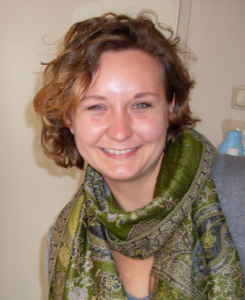PhD success and mental wellbeing in an international context (part 2)

Judith Zijlstra (MA) is doing a part-time PhD project in sociology and migration studies. She investigates international mobility in academic careers of Iranians and the ways they
translate professional experience from one context to the other.
In this interview dr. Claartje van Sijl (independent career coach for academics) discusses with her what makes an international PhD project successful (part 1) and how a cross-cultural academic career affects the mental wellbeing of the research professional (part 2). The interview was conducted through several emails back and forth in June 2018. This is part 2.
Claartje: PhD projects are inherently complex and evidently risky for your mental wellbeing. PhD students attribute their stressfully high workloads to this complexity. What is the impact of migrational and cultural complexity on mental wellbeing of the young Iranian academics in your study?
Judith: A quote from one of my research participants, Arash:
“In Iran, professors could not help me to develop myself. In Iran, you need to follow the professor, and he tells you what to do. This is their way of working. And when you publish something, the name of your professor comes first and yours is last, even though you did all the work: the professor always comes first.
And I developed according to that way of thinking. And when I came here in Holland, I had the first meeting with my professor, and he didn’t say anything. And I asked him what I should do. And he said ‘I am not gonna tell you what to do. You have to tell me what I can do for you.” And this was a challenge that I got confronted with. In order to understand and answer his question, I was forced to break my own brain/mind into pieces and build it from scratch to a different format. It was so different and so opposite from everything that I had learned. And this was one of the biggest challenges in my life in Holland, and at first it was scary for me, but then I started to enjoy it. “
Claartje: That is an impressive challenge! How did Arash succeed in this mental transformation, what kind of support was most helpful?
Judith: Indeed. Arash also mentioned that it was very hard for him to say “no” in the beginning. For instance, he tried different methods of modelling based on his supervisor’s suggestions. The problem was that the project became bigger and bigger because of that; his promotion got delayed.
I also feel that Arash was quite alone in this process and didn’t get a lot of support from others. The topic he worked on was very specific, and he was the only person working on it. Moreover, his supervisor was distant and was also working on another topic than him. And he does not have a very extended social network outside of his research: he only had a few close friends.
But based on the interviews I did with Arash, I can say that he managed to do this mental transformation because he has a very open-minded, philosophical approach to life. One of his goals for coming to the Netherlands was to become independent and find his own way in life: basically to “reinvent” himself in another cultural context. Moreover, he works very hard and likes to have a challenge. He feels very responsible for his work, and also for the chances he got in the Netherlands: he felt like a guest here, and he wanted to be a good guest. Unfortunately Arash wasn’t able to advance his academic career in the Netherlands and he had to return to Iran, where he works as a researcher and lecturer now.
Claartje: What is the greatest risk factor for the mental well-being of the Iranian PhDs in your study?
Judith: If I want to sum up some of the reasons why PhDs in my research become depressed, they would be:
- Starting a new PhD project in a different work environment, while having to adapt a new country and language and being apart from family and loved ones at the same time. Those who migrated with their partner can get more emotional and practical support from each other;
- Different work relations with their supervisor (see the quote above). They have to take initiative, and not only follow orders. Most people can adapt to that, but they find it difficult if their supervisor cannot spend so much time on them;
- Getting too involved in their PhD, so that they don’t have time or energy to develop other hobbies, interests or social contacts next to their research (see quote below)
- The (job) insecurity after finishing the PhD or postdoc is very severe; especially because it is connected to insecurity about their residence and ability to stay in the Netherlands;
- I believe that the ones who put less effort in learning Dutch also fail to make a connection with the host society, and in the end, this leads to loneliness and isolation, but also less career success;
- Critical life events such as the death of a parent or relative, or a divorce or break-up;
And to finish with a quote from one of my other research participants, Ali Reza Rohani. He did his PhD in Computer Science because this is the most valued high-status topic in Iran, but is secretly in love with psychology. This is a part of a blog he wrote:
“I successfully defended my PhD dissertation about ten months ago. After that, I felt empty, apathetic and dull; doubting whether this blue diploma had been worth the effort or not. That uncertainty drowned me further and further every day. One month later, I underwent a “clinical depression”, a dark period of my life which was filled with alcohol, cigarette after cigarette, and twelve hours of sleep per day. A time that cost me losing dear things in my life I can never get back. [….] When your identity is bound to your dissertation, it ends as soon as the dissertation is finished. Losing your identity in such a sudden way can cause severe disorders, like depression and anxiety. If you put all your eggs, or identity in this case, in one basket, then you are putting your emotional health at risk.”
Claartje: That is horrible and sad to read about his post-PhD depression. Unfortunately, stories like these are quite common, especially when the freshly minted PhD holder does not immediately have a new job to concentrate on. And it certainly does not help to bridge the gap from academia to a non-academic job. Perhaps we are here identifying a new psychological phenomenon not unlike the postnatal depression, but without the hormonal causes…?
What is the mitigating influence of psychological resilience on the PhD / Postdoctoral success in the international context that you study?
Judith: When talking about resilience, I see two patterns:
- Willingness to adapt to the Dutch host society; learning Dutch, trying to build up Dutch networks; and being very ambitious in an industry career really contributes to more wellbeing in their life and career;
- For those who want to continue with a career in academia, the most successful ones are those who are able to step outside their comfort zone, and try not to be only focused on their specific topic of research, but investigate other options (inside and outside academia) as well. Sometimes this means they have to move to yet another country to take up a postdoc position; despite their age or the presence of partner and children in the Netherlands.
Claartje: What you say here about resilience all turns around identity adaptation and new identity formation. I think you give very important advice here, Judith, not just for Iranian PhD candidates, but for all international PhD candidates who have a desire to stay in the Netherlands after their PhD. Learn at least some Dutch, invest in building Dutch networks as early in your PhD phase as you can manage. Yes, this will take you out of your comfort zone, as moving to a different topic of research will. But it is so worth it!
For many academics, not just internationals, it is absolutely normal to tie their identity to their research. But they do not realize the danger of this, often untill it is too late. If your identity and personal value depend on your research, what happens when your experiments fail or when you miss out on a prestigious personal research grant? You feel like a failure and that sucks (to say the least)! I don’t mean to say you should no longer care passionately about your topic, but I do believe that thinking about your identity in broader terms than “specialist in obscure thingy so-and-so” or “independent researcher” is essential for any PhD.
In what way do you expect your own identity to be changed through your PhD project?
Judith: My position and identity as a PhD candidate is different from the majority of PhDs because I gained several years of work experience outside academia before I started my PhD. And I am an external and self-funded PhD student, which means that I have a part time job next to my PhD. My identity is thus not solely based on my PhD research, although it provides me a lot of intellectual development. Therefore I also want to continue with research and writing after I finish my PhD. But during my PhD I have been very conscious about how to combine my research with my practical work skills and I dedicate a lot of attention to my long term career goals outside of academia, although it sometimes takes up valuable time I could otherwise spend on my PhD. I am currently trying to develop myself as a career counsellor and trainer for different target groups, and in the long run my dream is to set up my own company where I can combine career counselling with research, and let the two mutually reinforce each other.
Claartje: Thank you very much for this interview, Judith. From what I can see you are progressing very well in developing yourself as a career coach, especially for international knowledge workers like the Iranian PhDs in your current research project. I hope you will continue to build bridges between cultures and countries both in your research and in the work you do outside / next to your PhD!



Plaats een Reactie
Meepraten?Draag gerust bij!